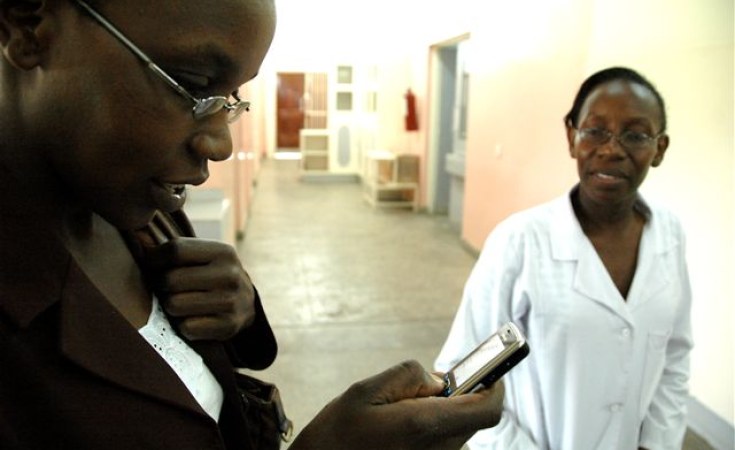Durban, South Africa — An inaugural summit on the use of mobile communications to support healthcare opens in Cape Town on Monday.
This emerging field is often called "mHealth" and the four-day summit is organized by the mHealth Alliance, founded by the United Nations Foundation, the Rockefeller Foundation and the Vodafone Foundation. It is sponsored by the cellphone industry body serving the world's more than five billion mobile subscribers, the Global System for Mobile Communications Association (GMSA).
For mobile industry leaders like GSMA's Gavin Krugel and Telefonica's Carlos Martínez Miguel, who spoke at a recent pre-conference briefing, the challenge is in finding sustainable business models that can give a return on investment to the mobile industry through mHealth initiatives.
"If we can take a sliver of the revenue of the health industry, this should be quite an opportunity for the mobile industry," Krugel said.
Sandhya Rao, the senior advisor for private sector partnerships at USAID, is trying to develop the business case for mobile operators to get involved in mHealth. She is enthusiastic about the Mobile Alliance for Maternal Action (MAMA), a U.S.$10-million joint venture with global U.S. pharmaceutical, medical device and consumer goods manufacturer Johnson & Johnson to be launched in South Africa, Bangladesh and India.
In contrast with mHealth interventions in developed countries, such as using smartphones to link community-based patients to hospital infrastructure, MAMA relies on the use of SMSs from inexpensive cellphones to register due dates with clinics, send information to support healthy pregnancies and remind new mothers about vaccinations and dates for check-ups.
The head of Technology Partnerships at the UN Foundation, Adele Waugaman, said at the briefing that several research studies are to be released at the summit. A survey that her foundation has undertaken with the World Health Organisation aims to measure progress in mHealth in 112 countries and will provide a benchmark that governments and NGOs can use in measuring progress in mHealth programs.
Healthcare in Africa is thought to be particularly well-placed to benefit from mHealth initiatives, given that mobile penetration in sub-Saharan Africa now stands at 49 subscribers per 100 inhabitants, according to business market research firm Frost & Sullivan. This represents nearly three times the coverage of fixed-line phones.
There are hopes that mobile technology can support healthcare in developing countries much as mobile banking services have assisted Africans underserved by mainstream financial services. The Times of Zambia recently noted in an editorial that the focus of mobile healthcare initiatives on rural people is vital because "they constitute the bulk of small-scale farmers who produce 80 percent of maize, the staple crop".
Not all health professionals are convinced that mHealth is key to improving healthcare. For Professor David Sanders of the School of Public Health at the University of the Western Cape and a member of the international People's Health Movement, mHealth is "a useful adjunct, but you still need inputs to address water and sanitation and other basic public health measures, and you need competent health workers".
Questions were asked at the pre-conference briefing about the health issues relating to mobile phones in the wake of a study released last week by the World Health Organisation (WHO)'s International Agency for Research on Cancer (IARC). The study by a working group of 31 scientists from 14 countries showed that cellphone use might increase the risk of developing certain types of brain tumours and thus should be classified in the same category of "possibly carcinogenic" substances such as lead, chloroform and coffee.
Following the briefing in advance of the mHealth Summit, journalists who asked about this study were sent a statement from GSMA. "The IARC classification suggests that a hazard is possible but not likely," said director for Research and Sustainability, Dr Jack Rowley. "Importantly, present safety standards remain valid and the result should be understood as indicating the need for further research."
Rowley noted that studies to follow the health of up to 250,000 mobile phone users over a long period of time are underway in Europe.
The opening address at the mHealth Summit will be given by the South African deputy minister of communications, Obed Bapela. The country's deputy minister of health will also attend, and the summit's organizers expect participants from several African countries, including Kenya, Rwanda and Nigeria.


